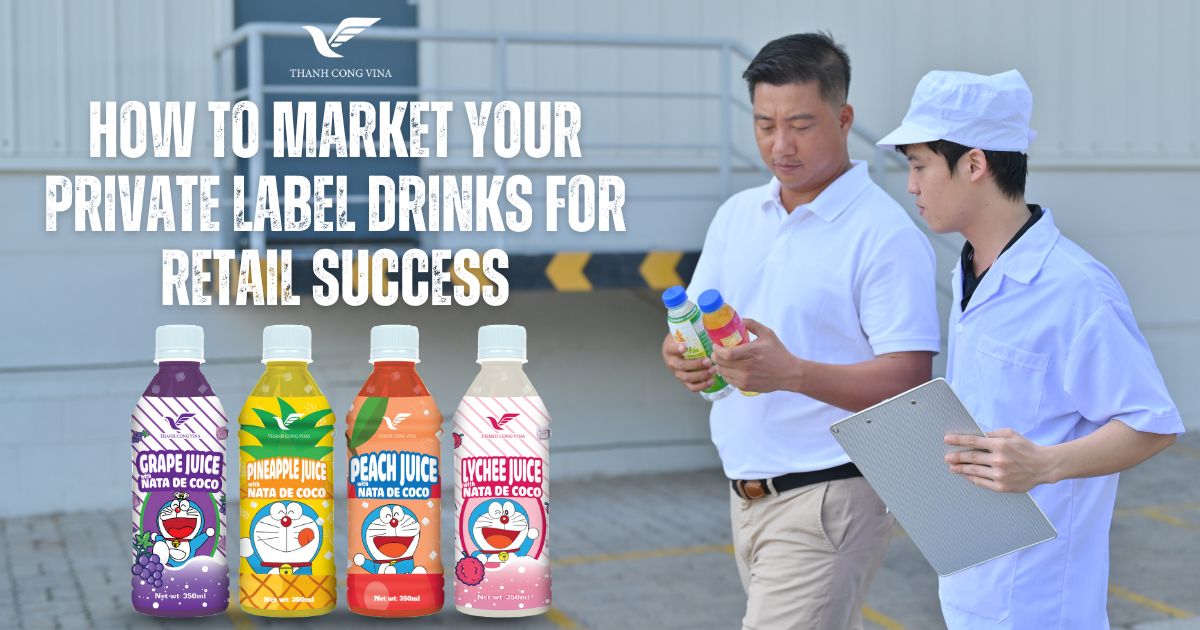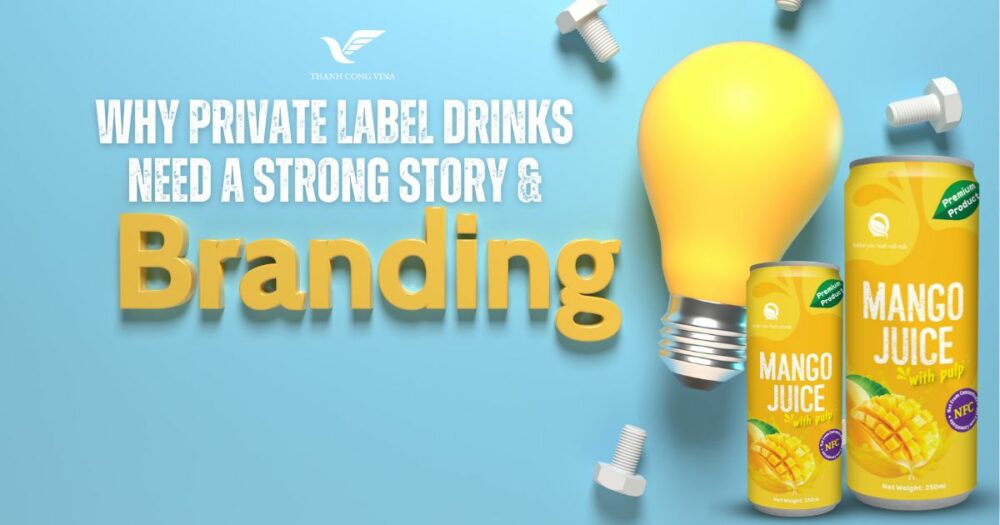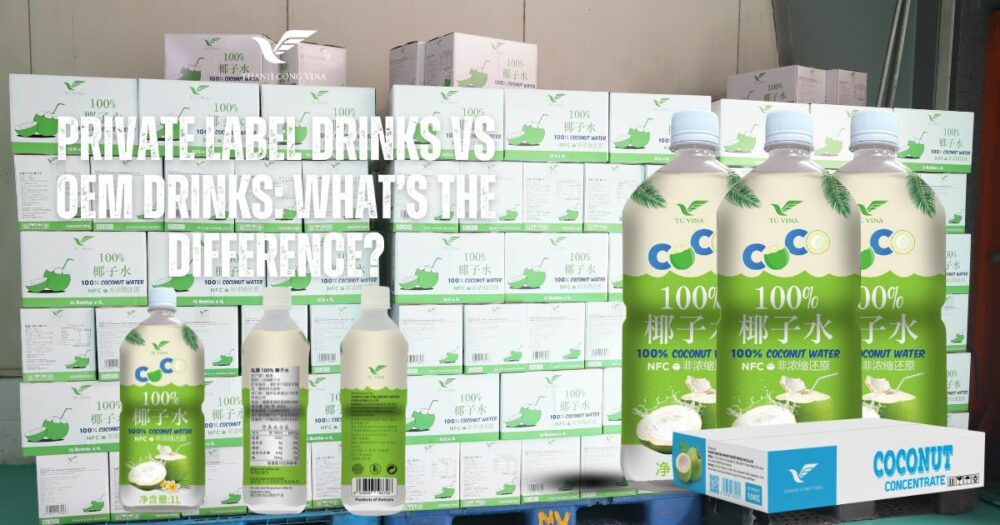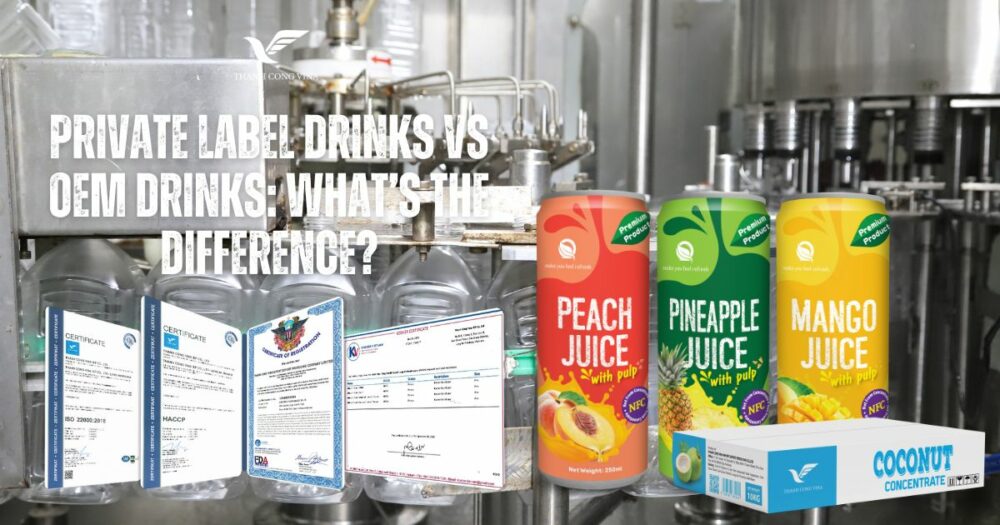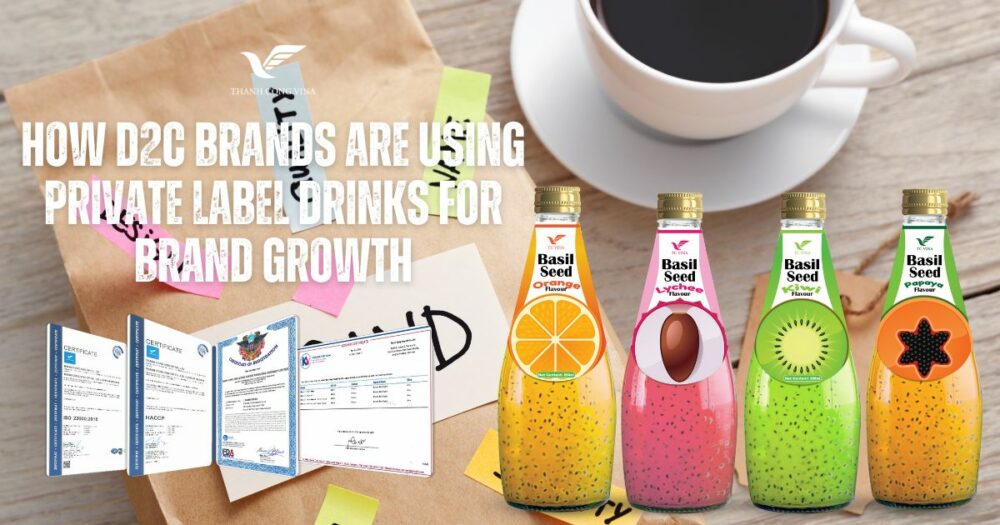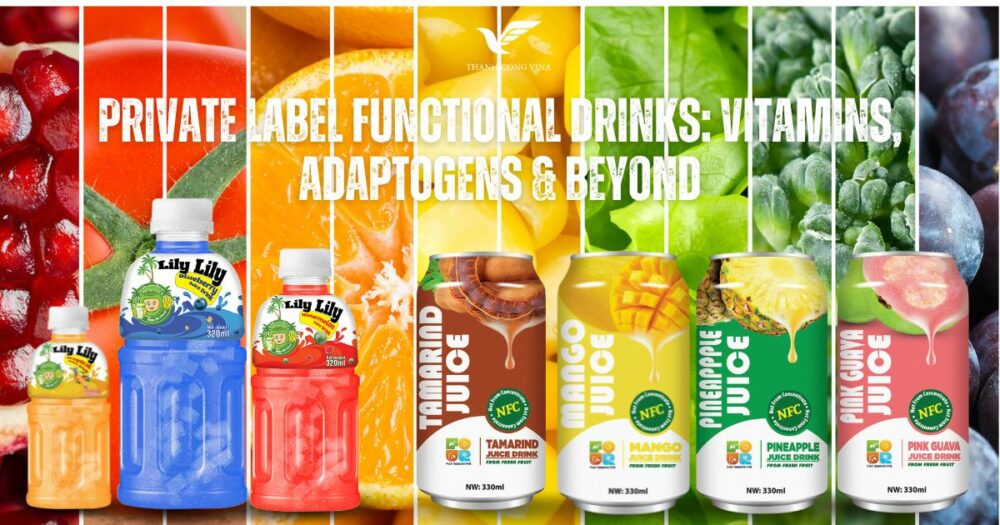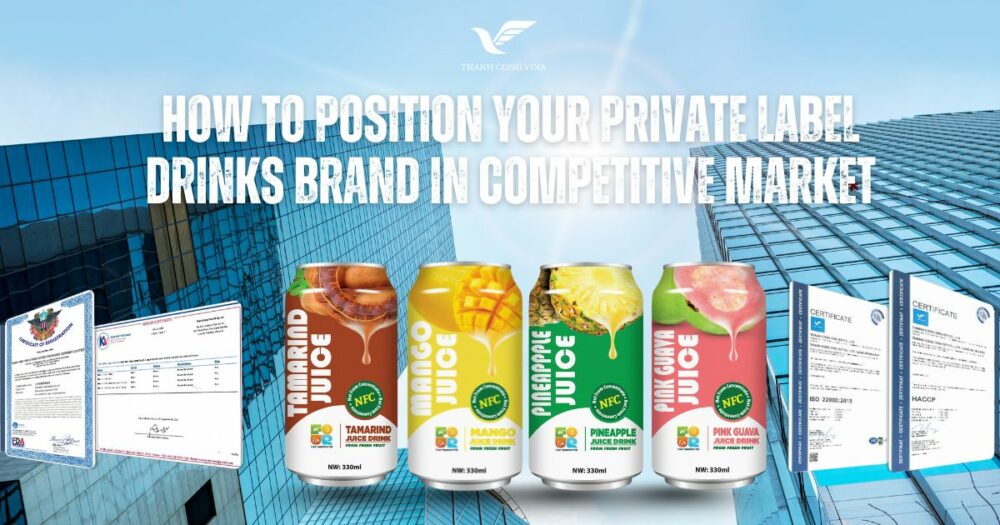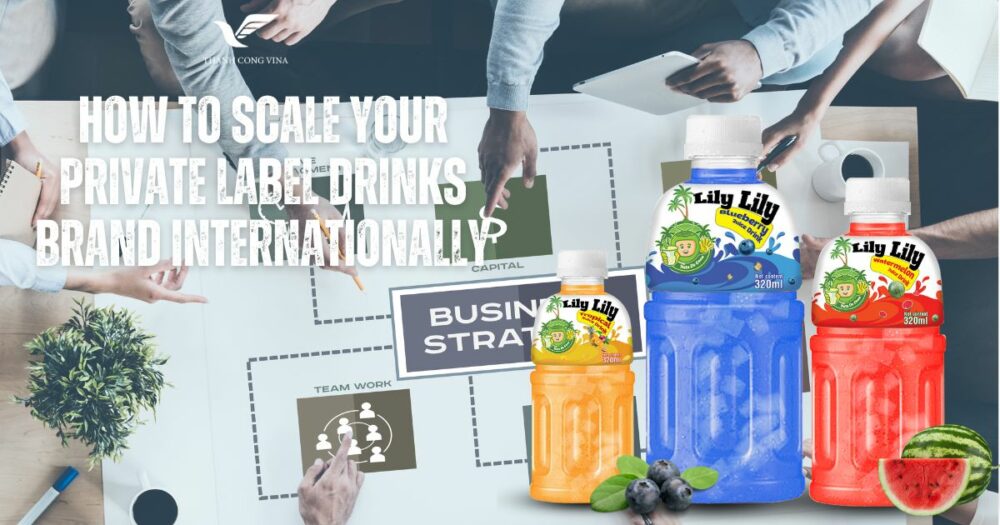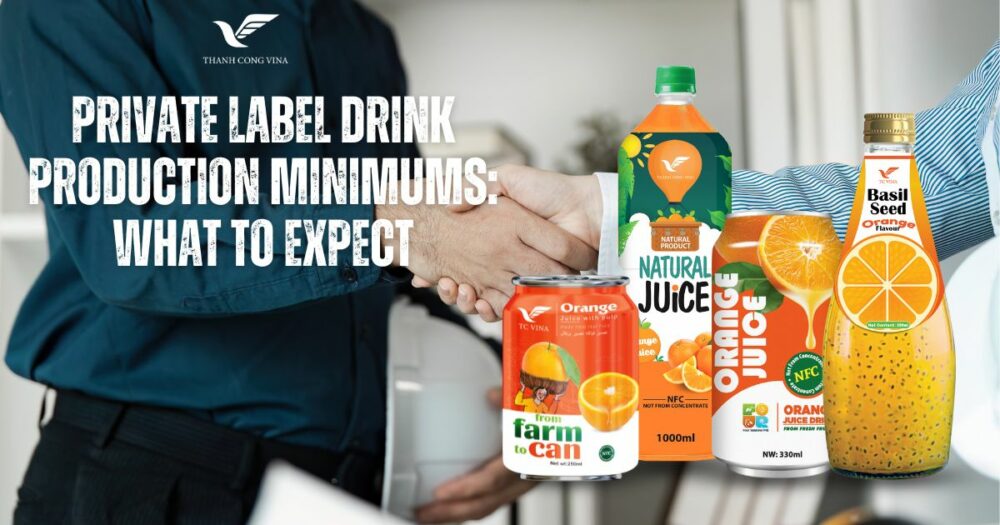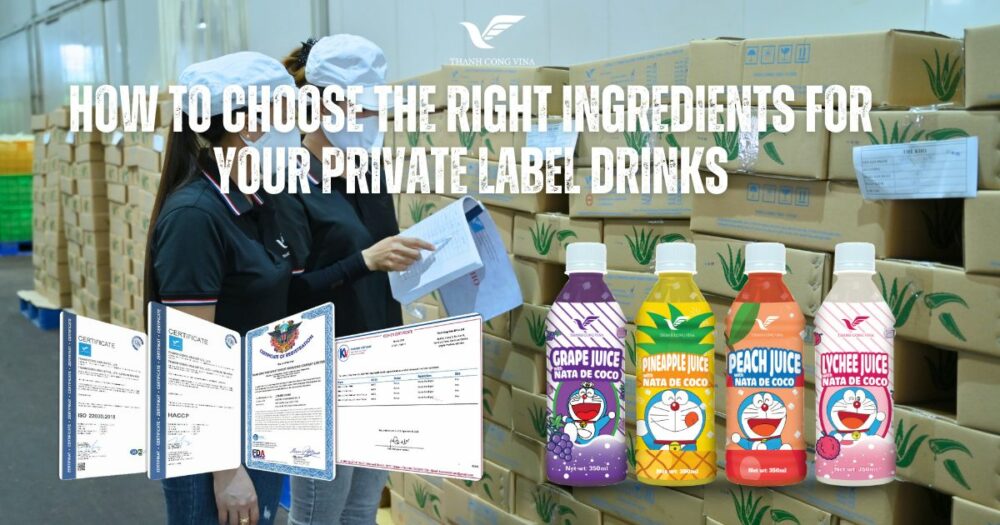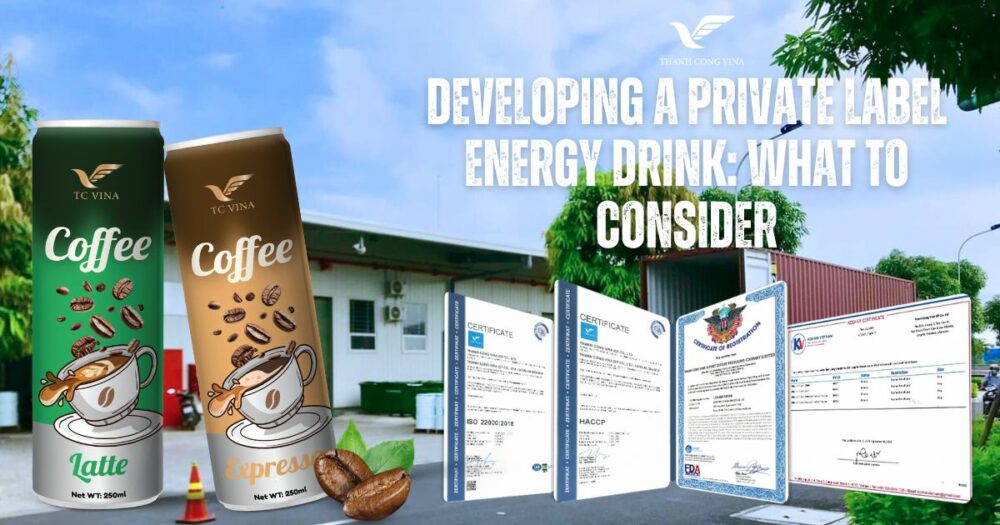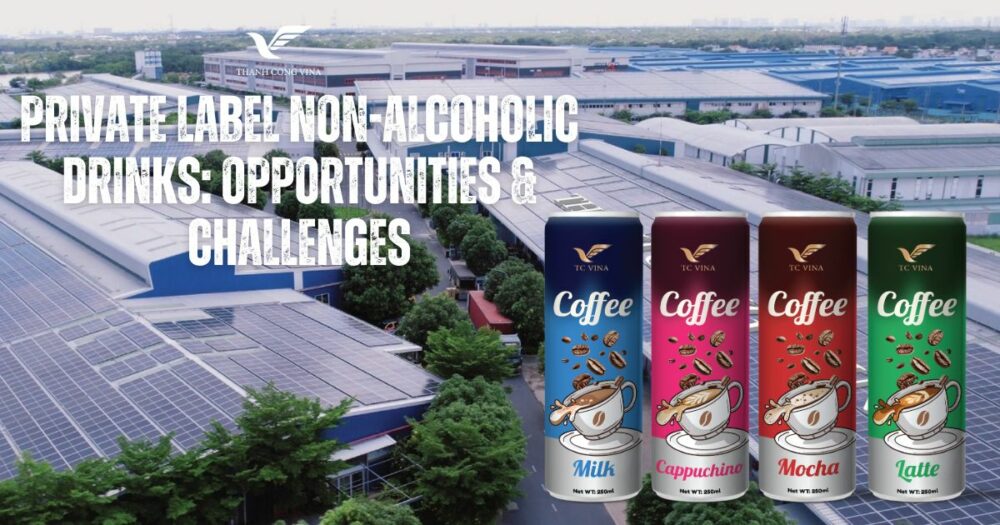The global beverage industry is rapidly expanding, and Private Label Drinks have emerged as one of the most promising segments thanks to growing consumer interest in affordable, high-quality, and customizable beverage options. From functional drinks and flavored waters to ready-to-drink teas and natural juices, retailers now have more opportunities than ever to build strong product lines under their private brands.
However, success in the retail market requires more than simply launching a new beverage. Retailers must understand consumer behavior, position their products strategically, apply compelling packaging, and implement data-driven marketing techniques. This comprehensive guide explores how to effectively market your Private Label Drinks for maximum retail performance, brand visibility, and customer loyalty. By mastering these strategies, retailers can carve out a competitive advantage and secure long-term growth in a crowded marketplace.
1. Understanding the Consumer Landscape for Private Label Drinks
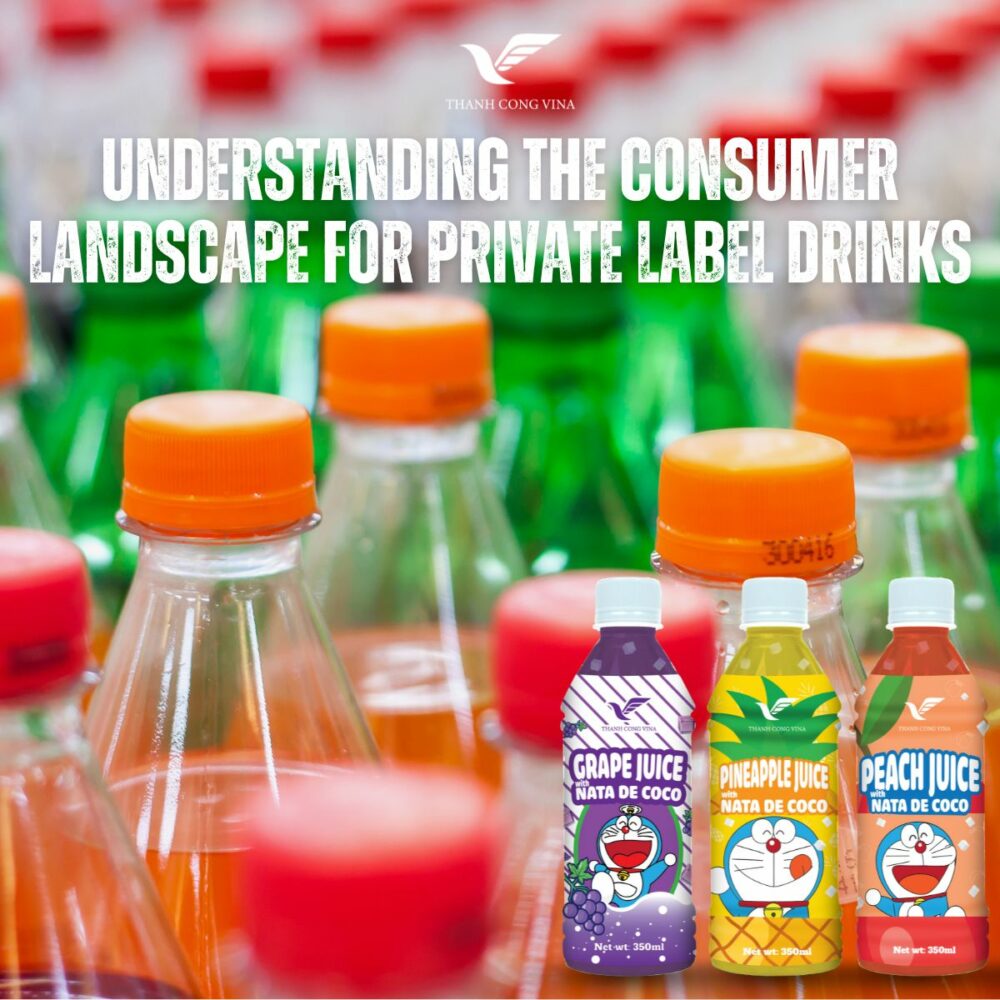
Understanding the Consumer Landscape for Private Label Drinks
1.1 The Shift Toward Affordable Quality
Over the past decade, consumers have increasingly demanded beverages that deliver value without compromising quality. Private Label Drinks fulfill this need by offering premium taste and functionality at accessible price points. This shift is especially strong among younger consumers who are open to trying new drinks if they align with their lifestyle, dietary preferences, and wellness goals. Retailers who clearly communicate quality, sourcing transparency, and nutritional benefits gain faster trust and higher conversion.
1.2 Health and Wellness Trends Driving Choices
The wellness wave continues to influence purchasing behavior. Consumers look for beverage options that support digestion, hydration, immunity, beauty, or sustainable living. Private Label Drinks that integrate functional ingredients such as aloe vera, collagen, vitamins, probiotics, or plant extracts typically perform well in modern retail environments. Marketing strategies should highlight these wellness benefits using clean, concise language that resonates with health-conscious shoppers.
1.3 The Role of Convenience in Retail Success
Time-pressed consumers gravitate toward beverages that provide on-the-go convenience. Ready-to-drink formats, resealable bottles, slim cans, and single-serving packs are all strong drivers of purchase intent. Retailers should analyze when and where their customers shop—morning routines, commuting hours, or lunchtime—and tailor product placement and messaging accordingly.
2. Crafting a Strong Brand Identity for Private Label Drinks
2.1 Defining Your Brand Promise
A clear brand promise sets the foundation for successful Private Label Drinks. Retailers should articulate what their beverage line stands for: affordability, purity, exotic flavor experiences, sustainability, or functional health benefits. A brand with a clear mission resonates more strongly with targeted demographics, creating deeper loyalty and repeat purchases.
2.2 Building Emotional Connections with Customers
Even budget-friendly products can evoke emotional resonance. Storytelling around sourcing, craftsmanship, or lifestyle values strengthens brand recognition. Retailers can highlight the origin of ingredients, their commitment to local farming, or innovative manufacturing processes. Incorporating these elements into marketing materials builds trust and positions the brand as thoughtful and consumer-focused.
2.3 Designing a Cohesive Product Portfolio
A cohesive beverage lineup signals professionalism and reliability. This involves harmonizing color palettes, typography, bottle shapes, and flavor naming conventions across all Private Label Drinks. Consistency encourages customers to explore different SKUs and increases basket value. Retailers benefit from developing a long-term roadmap for launching seasonal flavors, functional variants, or premium upgrades.
3. The Importance of Packaging in Retail Marketing
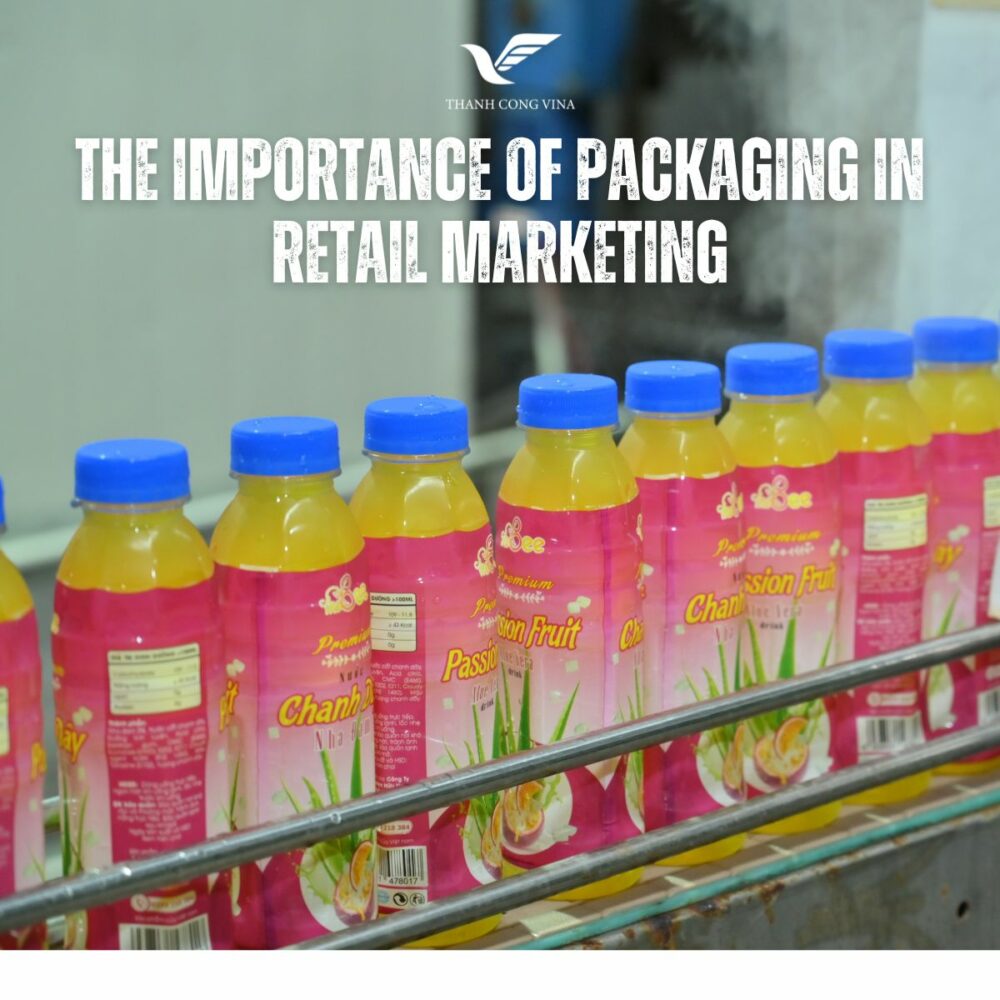
The Importance of Packaging in Retail Marketing
3.1 Visual Appeal and Shelf Impact
In retail environments, packaging often determines the first impression. Attractive, modern packaging designs draw attention amid crowded shelves. Retailers should invest in clean layouts, clear labels, and premium finishes that reflect their brand identity. Eye-catching color combinations and minimalistic graphic styles often appeal to younger and wellness-driven audiences.
3.2 Communicating Product Benefits Clearly
Packaging is also a strategic communication tool. Consumers should be able to quickly understand what makes the Private Label Drinks special—whether it’s low sugar, real fruit content, added vitamins, or organic certification. The front-of-pack should convey the top three benefits instantly. Clarity boosts consumer confidence, especially for new beverage categories.
3.3 Sustainable Packaging as a Selling Point
Eco-friendly packaging has become a major differentiator. Retailers can highlight their use of recyclable materials, lightweight bottles, or biodegradable labels. When sustainability is incorporated into the packaging story, it appeals strongly to environmentally conscious consumers. This can be a deciding factor in competitive retail spaces where many brands offer similar flavors and price points.
4. Strategic Pricing and Positioning of Private Label Drinks
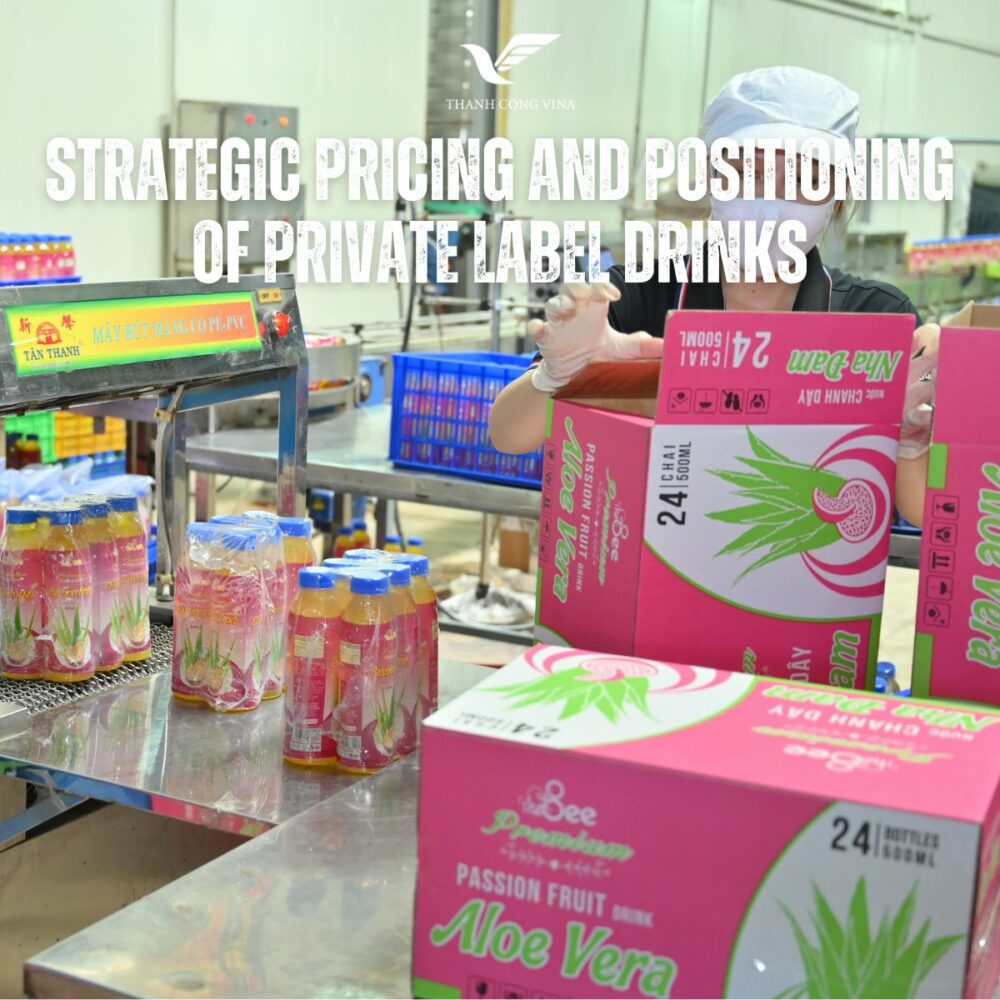
Strategic Pricing and Positioning of Private Label Drinks
4.1 Understanding Competitive Landscape Pricing
Pricing plays a fundamental role in consumer perception. Retailers should analyze the pricing tiers of competing national brands and private label competitors. Strategic pricing—slightly lower yet competitive—helps attract price-sensitive shoppers while reinforcing the brand’s value proposition. Premium tiers can also be introduced for functional or specialty Private Label Drinks.
4.2 Consistency Across Retail Channels
Maintaining consistent pricing across physical stores, e-commerce platforms, and partner retailers ensures brand integrity. Price discrepancies can confuse buyers or erode trust. Retailers should implement channel-specific promotions rather than permanent price differences to maintain unified brand positioning.
4.3 Value-Based Promotions and Bundles
Bundles, cross-category promotions, and loyalty program discounts can significantly drive trial and repeat purchases. For example, offering a discount on a combination pack of Private Label Drinks encourages consumers to try multiple flavors. Retailers may also offer limited-time seasonal bundles to boost visibility and create excitement around the brand.
5. Retail Merchandising Strategies for Maximum Visibility
5.1 Optimizing Store Placement
Shelf placement heavily influences purchasing decisions. Eye-level positioning, end-cap displays, and checkout-area visibility can substantially increase sales. Retailers should analyze customer traffic patterns within the store and place high-demand Private Label Drinks in high-visibility zones. Refrigerated placement often increases impulse purchases for ready-to-drink beverages.
5.2 Leveraging In-Store Sampling and Tastings
Consumers are more likely to purchase beverages they can taste. Sampling events help convert hesitant shoppers into buyers, especially when launching new flavors or functional variants. Retailers should pair sampling with limited-time promo pricing to encourage immediate purchases.
5.3 Seasonal and Thematic Displays
Seasonal merchandising—such as summer hydration centers or wellness-themed aisles—provides opportunities to showcase Private Label Drinks in fresh, engaging ways. These displays create relevance and help customers associate the drinks with specific moments or needs, boosting sales across multiple SKUs.
6. Digital Marketing Strategies to Boost Retail Success
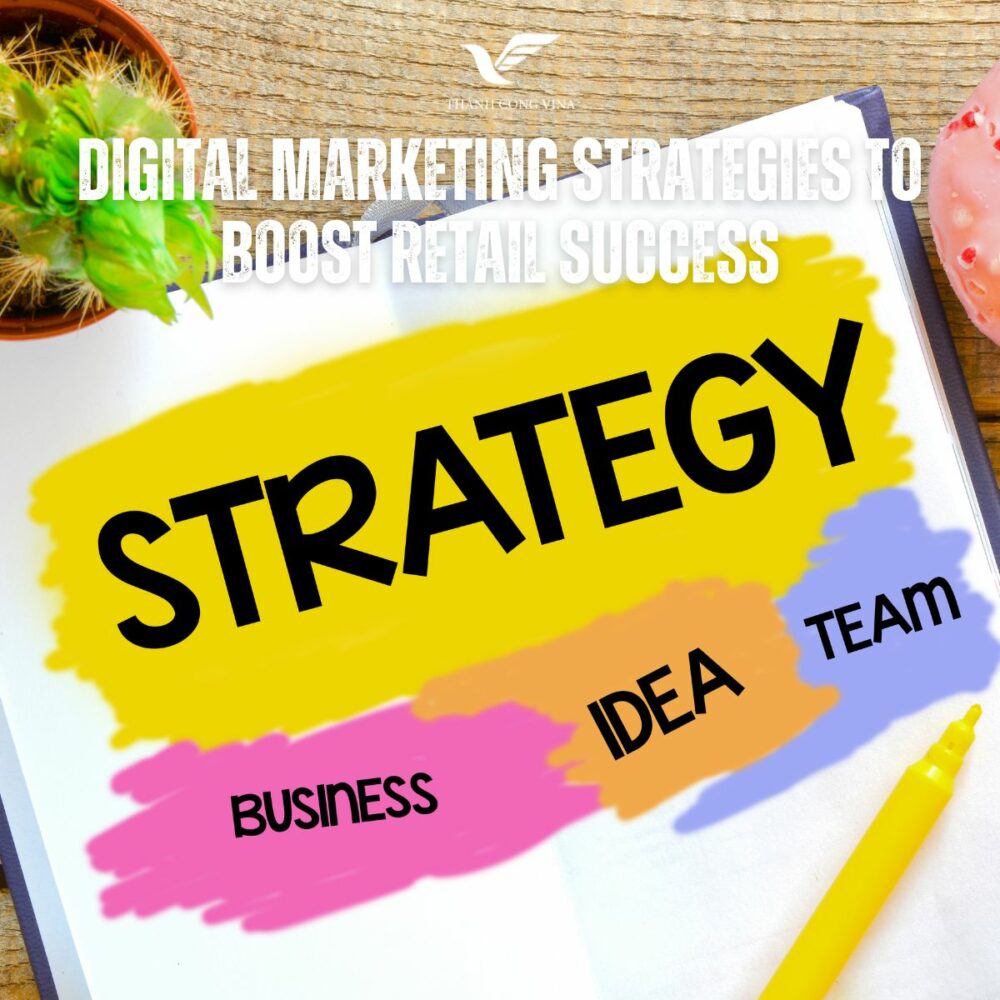
Digital Marketing Strategies to Boost Retail Success
6.1 Social Media Storytelling and Visual Content
Consumers increasingly discover new products through digital platforms. Retailers should use engaging visuals, behind-the-scenes content, and short-form videos to build awareness for their Private Label Drinks. Influencer partnerships amplify reach, especially among younger audiences who rely on social validation when choosing beverages.
6.2 Email Marketing for Promotions and Product Launches
Email newsletters remain a powerful tool for driving both online and in-store purchases. Personalized emails featuring discounts, new product announcements, and flavor spotlights help maintain customer interest. Retailers should segment their mailing lists to ensure relevant messaging for different demographics and purchase histories.
6.3 Leveraging E-Commerce for Broader Reach
Private Label Drinks can significantly benefit from online marketplace visibility. Listing beverages on e-commerce platforms allows for wider reach and more customer feedback. Detailed product descriptions, high-quality photos, and functional benefit explanations enhance customer confidence and drive conversions.
7. Building Long-Term Loyalty and Brand Advocacy
7.1 Encouraging Customer Reviews and Feedback
Reviews are powerful tools in shaping brand perception. Retailers should actively encourage customers to leave feedback after purchase. Positive reviews boost credibility, while constructive criticism helps improve product quality. Responding to reviews shows consumers that the brand values their opinions.
7.2 Loyalty Programs and Exclusive Product Access
Rewarding loyal customers increases long-term retention. Retailers can offer early access to new flavors, birthday discounts, or members-only bundles. Loyalty programs not only drive repeat purchases but also reinforce the brand’s commitment to customer satisfaction.
7.3 Community Engagement and CSR Initiatives
Brands that engage in community initiatives or sustainability programs tend to attract socially conscious consumers. Retailers can sponsor local events, support environmental campaigns, or donate beverages to community projects. This strengthens brand identity and builds positive associations with Private Label Drinks.
Conclusion
Marketing Private Label Drinks effectively requires a strategic blend of consumer insight, compelling branding, strong packaging, competitive pricing, and targeted marketing efforts. Retailers who invest in understanding consumer trends and positioning their beverages with clarity and purpose can achieve strong performance in both retail and digital spaces. Successful private label beverage marketing is built on trust, transparency, and consistent quality—elements that can elevate a retail brand above national competitors.
For brands seeking reliable beverage manufacturing support, Thanh Cong Vina offers high-quality production, flexible formulas, and professional private label solutions. With extensive experience in the global beverage industry, Thanh Cong Vina IEP CO., LTD ensures consistency, safety, and exceptional value for retailers looking to build or expand their private label drink collections.

